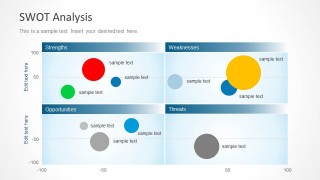Copy and paste the code below into your blog post or website
Copy URL
Embed into WordPress (learn more)
Comments
comments powered by DisqusPresentation Slides & Transcript
Presentation Slides & Transcript
© Gunda W. C. – 2017CIVICS DIRECTORY FOR FORM THREE
SUBJECT MATTERS TO COVER© Gunda W. C. – 2017Promotion of life skills Leadership, teamwork, relationships, self worth and confidence Economic and social development Concept of economic development Indicators of economic development Factors for economic development The role of financial institutions in development Role of government in development Role of private sector in development Social development and social services Role of government in the provision of social services Role of private sector in the provision of social services Successes and challenges facing the provision of social services Poverty Indicators of poverty Causes and effects of poverty in Tanzania Strategies for poverty alleviation in Tanzania
1. PROMOTION OF LIFE SKILLS © Gunda W. C. – 2017LEADERSHIP, TEAMWORK, RELATIONSHIPS, SELF WORTH AND CONFIDENCEThe qualities of good leadership - Talking/discussing with people, explaining clearly and persuading people, making constructive suggestions, educated, creativity Roles of a leader - Planning, decision making, building a team, mobilizing others, encouraging others, supervising others, implementation of strategy, budgeting, coordinating, organizing
Continue . . . © Gunda W. C. – 2017Effective Communication - Sender, message, receiver, feedback Self-worth - Is a feeling of confidence in yourself that you are good and useful Self confidence - Is achieved when one has focus and determination and knows they can be successful Factors of good leadership - Communication, motivation, education, teamwork, positive relationships, self worth and confidence
2. ECONOMIC AND SOCIAL DEVELOPMENT © Gunda W. C. – 2017CONCEPT OF ECONOMIC DEVELOPMENT Economic Development - The increase in the standard of living of a nation’s population with sustained growth from a simple low income country to a modern high income country Education - The process by which a society deliberately transmits its accumulated knowledge, skills and values from one generation to another ‘Education is a Debt’ - The student is indebted to the society for the privilege of receiving education and must serve society in return
Continue . . . © Gunda W. C. – 2017Liberalism - Socio-economic system in which individual liberties are supreme Entrepreneur - Someone who possesses a new business or idea and who assumes the risks of its outcome Bases of development - Leadership through education, democracy in decision making GNP (Gross National Product) - The total value of all products and services produced in a country
INDICATORS OF ECONOMIC DEVELOPMENT © Gunda W. C. – 2017Literacy Rate - The proportion of the population over the age of fifteen that can read and write The indicators of development in a given country - Education, infrastructure, technology, industry, better health services, good governance, high employment rates, low infant mortality rates, higher life expectancy, high GDP, high per capita income, access to good diet/food, better social services, high literacy rates Criteria used to determine if a country is underdeveloped - Poor economy, lack of infrastructural development, poor technology, conflict/war, few people complete education, high mortality rates, high corruption, diseases, poor industry, lack of transparency Conditions for development - Land, labour, technology, capital, markets
Continue . . . © Gunda W. C. – 2017FACTORS FOR ECONOMIC DEVELOPMENTImportance of industry and agriculture to developing countries - Agriculture provides raw materials to industries, industries provide manufactured goods to people (clothes/food), agriculture provides food to the people, both provide employment, both improve living standards of the people Domestic factors in Tanzania causing our economic crisis - Lack of technology, nepotism, high illiteracy level, corruption, lack of education, selling of industries to foreign nationals, poor government planning and leadership
Continue . . . © Gunda W. C. – 2017Problems facing informal sector - Inadequate funds, inadequate training and education, poor government support, poor technology, lack of areas for settlement, unplanned settlement Ways to improve the informal sector - Provision of education to build skills, access to loans, use of better technology, permanent settlement, good laws and policies
Continue . . . © Gunda W. C. – 2017THE ROLE OF FINANCIAL INSTITUTIONS IN DEVELOPMENT Financial Institution - An institution which lends money to people or businesses NEPAD (New Partnership for Africa’s Development) - An economic initiative for development of Africa Role of financial institutions in the development of Tanzania - Provide loans to people, promote higher living standards of the people, create employment opportunities, provide business education to people, maintains the value of money (ex central bank), establish economic projects and plans, provides financial support to special groups
Continue . . . © Gunda W. C. – 2017ROLE OF GOVERNMENT IN DEVELOPMENT Capital Expenditure - Government expenditure of development projects Nepotism - Favouring of relatives/friends over qualified/educated people PCB (Prevention of Corruption Bureau) - The Anti corruption bureau in Tanzania Role of government in regulating national development - Provision of social services, construction of transport/communication systems, making laws and policies, planning overall strategy, promoting new technology, collection and effective utilization of taxes
Continue . . . © Gunda W. C. – 2017Role of government in the promotion of economic development in Tanzania - To encourage citizens to get involved in various production activities, to promote domestic and foreign investment, Support citizens economic activities, to provide economic and financial education to citizens, provision of better social services, to invite foreign governments and organizations to support economic and infrastructural projects, ensure effective and sustainable use of natural resources, develop tourism, mining and agricultural sectors
Continue . . . © Gunda W. C. – 2017Role of local government in speeding up social, economic and political development of Tanzania - Provision of social services, maintenance of peace and security, making of laws and policies, planning and coordinating projects, collecting and allocating revenue Effects of corruption towards development in Tanzania - Ineffective provision of social services, leads to selfishness/nepotism/favouritism, doesn’t promote a diversified economy, denies equality and justice, leads to poverty and poor infrastructure Parastatals - Used to facilitate state centered economy in Tanzania
ROLE OF PRIVATE SECTOR IN DEVELOPMENT © Gunda W. C. – 2017Advantages of privatization - Increases the amount of capital invested in our economy, increases the efficiency of operation, increase industrial output, increases government revenue, expansion of employment opportunities, improvement of infrastructure Disadvantages of privatization - Kills local industrial sector, causes unequal distribution of wealth, entrenchment of workers, may lead to the importation of outdated technology, kills markets for local raw materials Importance of private sectors in Tanzania - Help in the provision of social services (banking/health), provides employment, diversifies the economy, brings money into Tanzania, develops infrastructure, provides goods to citizens
SOCIAL DEVELOPMENT AND SOCIAL SERVICES © Gunda W. C. – 2017Social Development - Refers to a change in the social structure of a society in terms of its nature, social institutions, social behaviors or social relations NEMC (National Environmental Management Council) - Government organization responsible for environmental management Importance of reproductive health - Prevents risks associated with frequent pregnancies, protects from risk of high mortality rate, gives information to take precautions given their health status, avoids need for abortion, avoids drugs/alcohol during pregnancy, reduces spread of STDs or HIV to child, elimination of female circumcision The purpose of education is to benefit society
Continue . . . © Gunda W. C. – 2017ROLE OF GOVERNMENT IN THE PROVISION OF SOCIAL SERVICES Role of the government in the provision of social services - Training people (experts), provision of tools and equipment, constructing new transport systems and repairing the old ones, education the public about how best to use social services, good policy making and implementation
ROLE OF PRIVATE SECTOR IN THE PROVISION OF SOCIAL SERVICES © Gunda W. C. – 2017Role of private sector in the provision of social services – Building and running hospitals/schoolsProviding educationDrilling wells to provide clean water sourcesBuilding transport and communication systemsProviding loans
SUCCESSES AND CHALLENGES FACING THE PROVISION OF SOCIAL SERVICES © Gunda W. C. – 2017Challenges facing the provision of social services in Tanzania - Inadequate funds, poor transport/communication system, poor technology, corruption, lack of qualified personnel, bad ethics Solutions for the problems facing the provision of social services in Tanzania - Use of advanced technology, construction of better communication/transportation system, enforcement of anticorruption laws, better education to develop qualified personnel, good ethics
3. POVERTY© Gunda W. C. – 2017INDICATORS OF POVERTY Per Capita Income - Income of an individual in a year Two levels of poverty - Poverty at a national level - A situation whereby a country is economically dependent on external assistance to finance its basic needs so that it can survive as a nation Poverty at an individual level - A situation whereby a person is unable to afford his or her own basic needs like food/clothing/shelter
CAUSES AND EFFECTS OF POVERTY IN TANZANIA © Gunda W. C. – 2017Effects of poverty in third world countries like Tanzania - Loss of freedom, lack of education, lack of women’s rights, corrupt governments, violence and conflict, malnutrition and hunger, poor economic output, diseases, poor infrastructure, poor social services, political unrest, weakens national sovereignty Why so many in Tanzania have fallen into poverty since independence - Corruption, poor economic management, poor transport/communication system, poor infrastructure, poor technology, bad leadership, lack of education and skilled personnel, inadequate funds
Continue . . . © Gunda W. C. – 2017Reasons for poverty and backwardness in many sub-Saharan countries – Inadequate fundsPoor technologyPoor leadership/governanceIneffective utilization of resourcesBad cultural practices, colonial legacyTribal conflictPoor infrastructurePoor transport/communicationWeak economyWeak democracy
STRATEGIES FOR POVERTY ALLEVIATION IN TANZANIA © Gunda W. C. – 2017Strategies to alleviate poverty in rural areas of Tanzania – Effective utilization of resourcesUse of advanced technologyImproving educationConstruction of infrastructureImprovement of transport/communication systemsEmpowering womenGood leadershipDevelopment of economic activities in rural areasEncourage participation of private sectors





